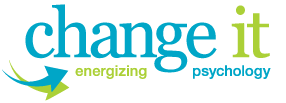Depression
 Depression has many symptoms which are listed below. When people talk about “clinical depression” they have from a few of these symptoms (mild depression) to almost all of them (severe depression).
Depression has many symptoms which are listed below. When people talk about “clinical depression” they have from a few of these symptoms (mild depression) to almost all of them (severe depression).
Most people have probably felt low at some point in their lives and may have called this “being depressed.” However, mood fluctuations are a normal part of being human and can help inform us that something is not quite right. It is called depression when you’ve had a number of the symptoms above for over 2 weeks, and they are interfering with your daily functioning in some way.
People who are depressed have used words like a fog or black cloud has descended upon them.
It is common for depressed people to feel anxious as well (this occurs in up to 70% of cases) with symptoms including worry, nausea, dizziness, hot and cold flushes, blurred vision, a racing heartbeat, trembling and sweating. See our page on anxiety for more.
Do you experience any of these symptoms?
Mood Symptoms
• Feeling depressed
• Feeling irritable
• Feeling guilty
• Feeling hopeless
• Loss of pleasure
• Low motivation
• Lack of interest in usual activities
Body Symptoms
• Loss of appetite or increased appetite
• Weight loss or gain
• Too little sleep (insomnia) or too much sleep
• Being slowed down or sped up
• Fatigue
• Low energy
• Impaired concentration
Thinking Symptoms
• Thinking you are worthless
• Thinking it’s all your fault or you’re being punished
• Difficulty making decisions
• Thinking about suicide or wishing you were dead
Behaviour symptoms
• Withdrawal from others
What causes depression?
There is no one cause of depression and it is best viewed as “multifactorial”—that is, a number of different factors can cause it. Psychologists like to call it the “biopsychosocial” theory, in other words, partly biological/genetic, partly psychological (what you’ve learned over the years, influencing how you think and behave) and social (influence of others in your life including losses and conflict).
Counselling for depression?
There are many types of therapy that have been shown to be useful for depression. At Change it psychology we tend to use skills based approaches including cognitive behavioural therapy (CBT), acceptance and committment therapy (ACT), and mindfulness based approaches.
What is cognitive behavioral therapy (CBT) and acceptance and commitment therapy (ACT) for depression?
Therapy for depression is a structured, practical and effective intervention. It involves identifying and addressing the behaviors and thinking patterns that cause and maintain depression. It is a present focused therapy and looks at how thoughts and behaviours contribute to feeling bad or good. CBT and ACT and mindfulness aspproaches can give you the tools to think differently and move towards a happier life.
How effective is therapy for depression?
Numerous research studies have consistently demonstrated that cognitive behavioural therapy (CBT) and acceptance and committment therapy (ACT) are effective for depression. For mild to moderate depression psychological treatment is at least as effective as antidepressant medication in the treatment of major depression.
What about medication?
Various medications have been found to be effective in the treatment of depression. It is best to speak to your GP about these and if necessary, your psychologist and GP can liaise over the best treatment.
What do I have to do in therapy for depression?
Therapy (CBT and ACT) for depression require you to be an active participant in treatment. Your therapist may also give you homework exercises to assist you in modifying your behavior, your thoughts, and your relationships. Although many patients suffering from depression feel hopeless about improvement, there is a high likelihood that with therapy, you can feel a lot happier.
How do I book?
For fastest handling of your query, book now through our contact form and we will respond within one working day. We look forward to working with you on changing it – having more confidence and happiness in your life.

